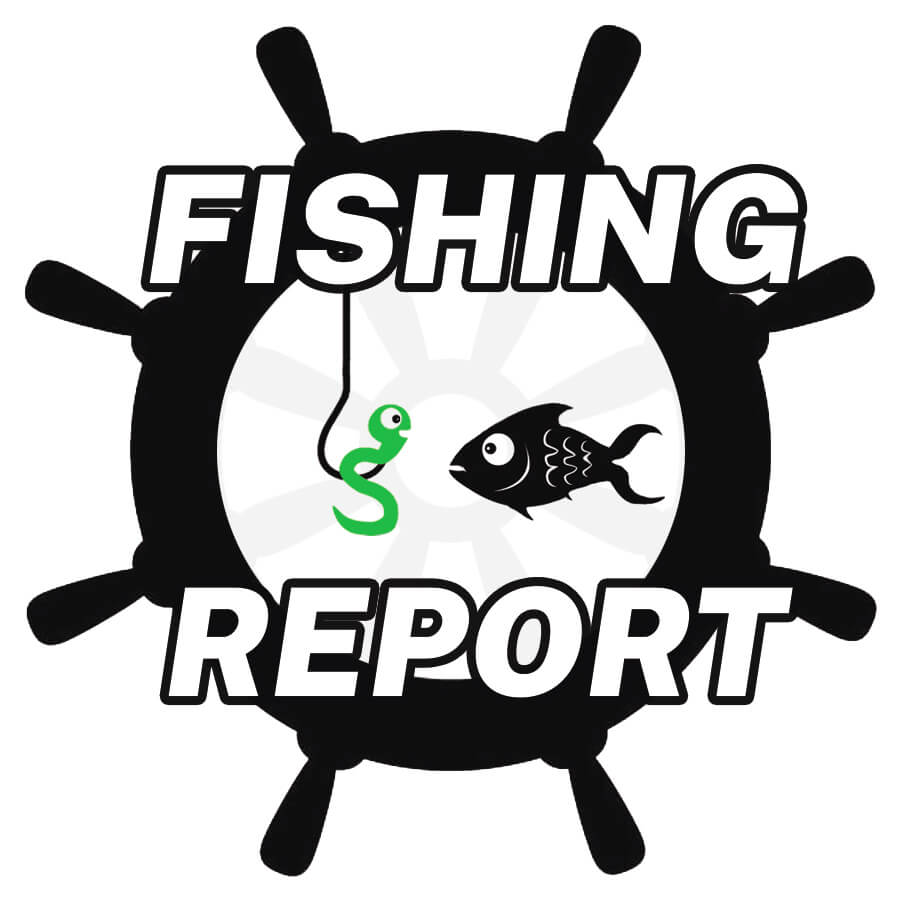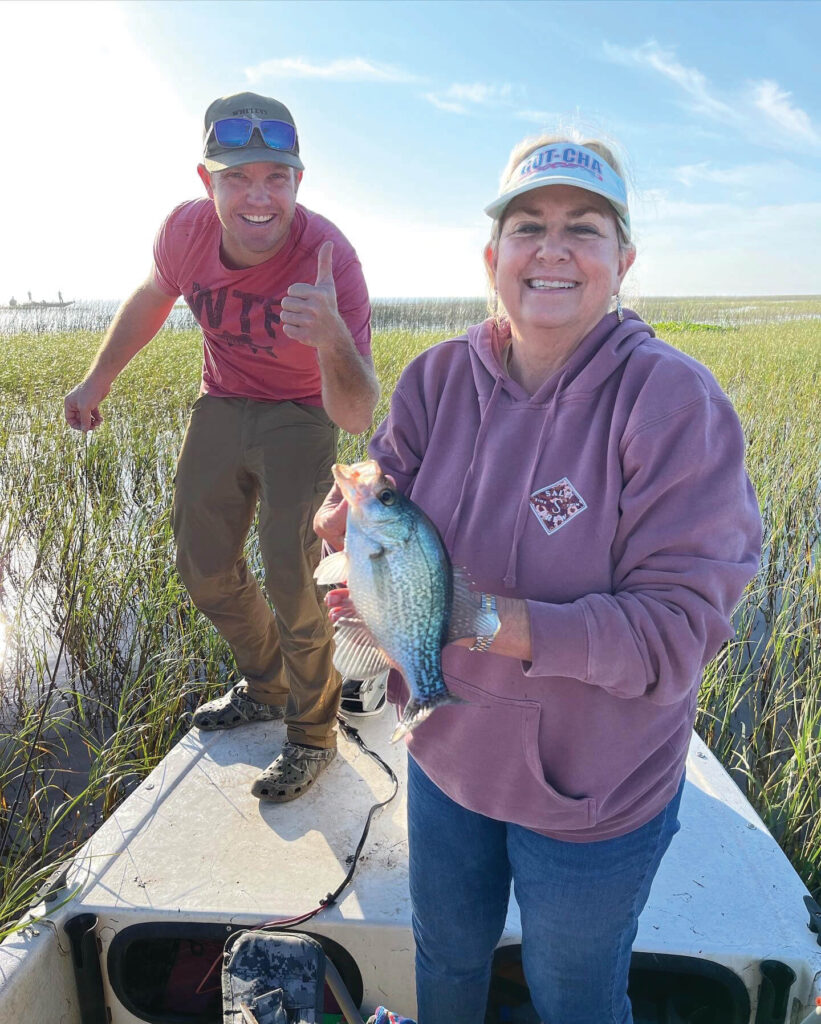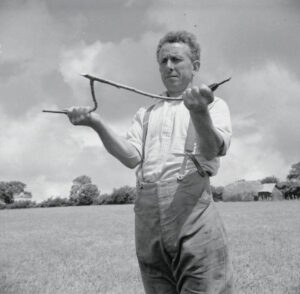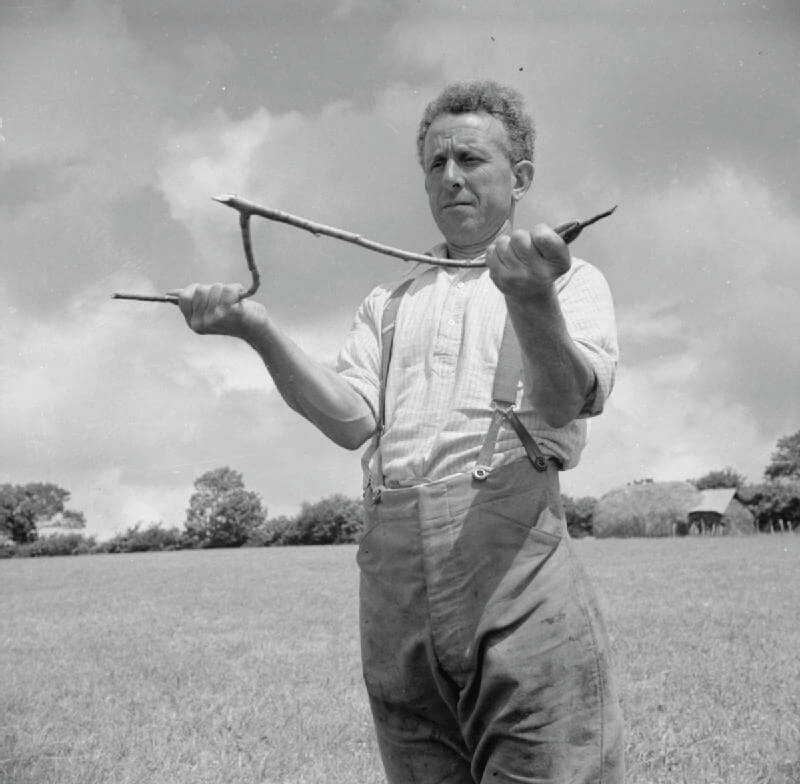
By CAPT. MATT BADOLATO
It’s fun to be terrible at something new.
Why?
Inexperience with new things brings us back to childhood. Back when every activity was fresh and exciting. Streetlights flicker in our mind. Neural pathways light up. We experience radical amazement in a whole new world.
I set off for Lake Okeechobee, my 16-foot Carolina Skiff bouncing behind my seriously rusty truck. Foggy. Awfully foggy. My wiper motor is broken and the windshield keeps reminding me. I lean out the window with a squeegee while doing 65 mph.
I’d never caught many crappies — aka specks. Growing up saltwater fishing, I just rarely had the chance. The fundamentals are the same — to find fish you must identify their: 1. Prey, 2. Habitat, 3. Patterns. I don’t have an intrinsic knowledge of freshwater fish behavior and lake ecosystems, so it’s all fresh and new. Neural paths are abuzz.
With a few tips from some old-timers on where to look and how to jig, we set off on the lake. The sun rises as we dip our jigs into thick lily pads. A couple twitches of the rod tip later, my line thumps. I set the hook, whipping a deep bend in that 12-foot jigging rod. A slab speck flops into the boat. Neurons ablaze!

jigs, a few poles, a bucket of minnows, and maybe a boat. The boat need not
be fancy — an engine isn’t even necessary.
Panfish are most Americans very first fish. What outdoors man or woman doesn’t have a faded old photo of them with a big smile and a bluegill? They are ubiquitous, accessible, and affordable to target. The draw of fishing for them is simplicity — a cane pole, string, hook, bobber, and bait.
We catch four more in no time, along with a 5-pound bass, just dropping the jigs in thick vegetation. The trick is to not to let the jig fall too fast. Drop it in, then make little pops as you lower the rod. Specks have upward-facing eyes and an upturned mouth. They feed from below, looking up for prey.
Crappie are the thinking man’s panfish. They’re big, tasty, piscivorous predators that are constantly on the move. Their behavior patterns are complex and governed by forage, moon phase, water temp, and photoperiod.
Despite these intricacies, the joy of fishing for these panfish is also — paradoxically — the simplicity. All one needs are some little jigs, a few poles, a bucket of minnows, and maybe a boat. The boat need not be fancy — an engine isn’t even necessary.
As the sun burns off the lake fog, the bite slows down. “Crappie hate the light cuz they ain’t got no eyelids,” a fellow once told me. “You have to fish in the shade.” We start plopping our jigs beneath the darkest cover we can find—downed cattails, tangled willows, thick mats of hyacinth—and we catch a few more.
The complicatedness of speck fishing is partly due to the environment in which it occurs — calm lakes and slow rivers. Deep-sea fishing is ripe with expensive necessities like larger boats, loads of fuel, safety equipment, electronics, and fancy tackle. Along with expense and preparation required, the element of danger in the ocean is exponentially greater.
We were a sight to see. My friend, his mom, and myself, hooting and hollering as we flipped specks into the tiny flat-bottom boat. The commotion caused a limpkin to drop a huge apple snail and fly away. You could hear our squeals of delight as far away as Immokalee.
As outdoorsfolks, we can get trapped in thinking the enjoyment of adventures must progress in a linear fashion. What I mean is, there’s a tendency to want to advance to the next most adrenaline-full level in any activity. Surfers want larger and larger waves as they progress. Fishermen want bigger fish in badder places. I’m sure it’s the same in mountain climbing, skiing, hunting, etc.
But when we do this, when we yearn for more-bigger-better, it can be because we are passionate, but it can also be a sign we are not being present, not taking it all in … slowly. We risk being (slightly) ungrateful for what’s in front of us. When we are content with the simple things, or when we look for new bits of knowledge while doing the old things, it’s priceless bliss. Neurons satiated.
With the sun straight overhead, the speck bite died. We motored back to the ramp and divided our humble catch — a dozen big specks. It was the most I’d ever seen in one cooler.
I know I mentioned earlier how great it is to not be good at something, but it’s much more enjoyable to watch yourself get better at whatever it is. But we’ll never learn it all, so we should work at taking it slow. Keeping it simple.
Embrace being a new-bee. Your neurons will thank you!●













































